U.S. restricts travel, remittances to Cuba as part of a new policy under Trump BY NORA GÁMEZ TORRES APRIL 17, 2019 01:00 PM, UPDATED APRIL 17, 2019 07:22 PM The Trump administration on April 17, 2019 announced new restrictions on travel to Cuba as well as the amount of money Cuban Americans can send to relatives
U.S. restricts travel, remittances to Cuba as part of a new policy under Trump
The Trump administration is tightening restrictions on travel and remittances to Cuba, reversing the engagement policies from the Obama era while increasing pressure on the island’s government in response to its support of the Nicolás Maduro regime in Venezuela.
“In no uncertain terms, the Obama administration’s policies toward Cuba have enabled the Cuban colonization of Venezuela today,” National Security Advisor John Bolton said Wednesday during a speech at the Biltmore Hotel in Coral Gables. The changes were designed to reverse “the disastrous Obama-era policies, and finally end the glamorization of socialism and communism,” he added.
Travel to Cuba for reasons other than family visits will be limited, in an effort to restrict travel deemed as “veiled tourism,” said a high-ranking official who spoke on condition of anonymity. That could signal the end of cruises, which started to operate during the Obama years because of an expansion of the categories of travel allowed.
The re-tightened restrictions also could impact air travel because of a reduction of passengers. U.S. law currently allows only 12 categories of travel, among them educational visits, to promote people-to-people contacts and for professional and research work.
Travel by Cuban Americans to reunite with relatives on the island will remain unchanged, and the new limits on remittances will be “generous … because we don’t want to hurt the families,” said the senior administration official who asked to remain anonymous in order to explain the rationale behind the changes. Former President George W. Bush was broadly criticized in 2004 when he restricted those visits to three per year and imposed tight limits on remittances.
Bolton said remittances will be capped at $1,000 per person every three months, compared to the unlimited remittances allowed by the Obama administration “under the assumption that capital inflows would benefit the Cuban people. Yet, the situation for Cubans has in fact worsened.”
The U.S. Treasury Department also will suspend Obama-era authorizations that allowed Cuban companies and banks to perform “U-turn” transactions in third countries that passed indirectly through the U.S. banking system. Bolton said that allowed the Cuban government to evade U.S. sanctions and obtain access to hard currencies.
In addition, the State Department will add five companies to its list of restricted entities, including Aerogaviota, an airline controlled by Gaviota, a group of tourism-related companies controlled by the Cuban armed forces. Those measures are in addition to the full implementation of the Helms-Burton law, which will allow lawsuits in federal courts seeking compensation for properties confiscated by the Cuban government after 1959. The step was formally announced by Secretary of State Mike Pompeo on Wednesday morning and is scheduled to take effect on May 2.
“It’s a watershed moment,” said U.S. Rep. Mario Diaz-Balart in remarks during the luncheon at the Biltmore hotel. Listening in the audience was his brother congressman Lincoln Diaz-Balart, a fierce proponent of the Helms-Burton Act. “My message to those protesting: If you are not trafficking in stolen property, you have nothing to fear … but if you are, it is going to cost you dearly.”
Bolton also noted the recent sanctions against 44 tankers and six companies involved in delivering Venezuelan oil to Cuba, designed to impact the subsidies that Maduro provides to Havana. And he accused the Cuban government of training Maduro’s repressive forces and inspiring the establishment of colectivos and other pro-government paramilitary groups in Venezuela.
Aside from reversing some of the changes put in place by the Obama administration, the new Trump policies on Cuba were designed to signal to the Cuban government that “its support for Maduro will come at a cost,” said the senior administration official who asked for anonymity. “And we will continue with the sanctions. Our policy has two pillars: constancy and consistency.”
Bolton also announced new sanctions against the Venezuelan and Nicaraguan governments, which alongside Cuba make up what he’s called “the troika of tyranny.”
The Treasury Department will sanction the Central Bank of Venezuela, which has helped the Maduro regime to sell gold for hard currencies, and Banco Corporativo of Nicaragua (BanCorp), used by Daniel Ortega as his “slush fund.” It will also impose sanctions on his son, Laureano Ortega Murillo, accused by U.S. officials of corruption in a Nicaraguan investment company.
“These steps against the Central Bank of Venezuela should be a strong warning to all foreign actors, including Russia, against deploying military units in Venezuela to shore up the Maduro regime,” Bolton said.
Bolton’s remarks drew immediate criticism from policy experts, pro-engagement activists and former Obama aides.
“Capping remittances is mean-spirited, and can only be understood as the U.S. government’s attempt to create economic hardship among the Cuban people,” said Emily Mendrala, executive director of the Center for Democracy in the Americas and former national security advisor under Obama. “Ambassador Bolton’s speech conflated Cuba with Venezuela, and he announced a policy approach that does the same. The two countries are different, living through very different moments, and to exploit events in Venezuela to settle Cold War scores with Cuba is a distraction from real needs in Venezuela.”
Even before Bolton delivered his speech, Mark Feierstein, the former National Security Council’s director for the Western Hemisphere, tweeted: “As Bolton delivers speech in Miami today on Cuba, it’s useful to keep in mind that according to public opinion polls, most Cuban-Americans approve the measures taken by the Obama Administration to support the Cuban people. The NSC is out of step with majority opinion in Miami.”
Bolton announced the policy changes during a speech that wove together several threads, starting with a contrast between Trump and Obama policies that was warmly welcomed by an audience primarily of Cuban exiles who felt betrayed by the engagement policies of the Obama administration.
“To justify its policy of normalizing relations with Cuba, President Obama said Cuba quote ‘poses no genuine threat.’ Tell that to the American diplomats who were attacked in Havana. Tell that to the terrorized people of Venezuela. The reality is that the Obama government sought to normalize relations with a tyrannical dictatorship,” Bolton said. He reminded his audience that Trump met with opposition activists like the Ladies in White and called the late Fidel Castro “a brutal dictator.”
The issue of betrayal has a special resonance among veterans of Brigade 2506, Cuban exiles who participated in the failed Bay of Pigs invasion in 1961 and invited Bolton to Miami.
The veterans have long blamed their defeat on President John F. Kennedy’s last-minute decision to withdraw critical air support for the landing. The decision to deliver Bolton’s speech on April 17, the anniversary of the invasion, has been criticized by Cuban government officials and activists who support engagement.
The measures announced on Wednesday “seem essential for a change to happen in Cuba,” said Eduardo Zayas-Bazán, secretary of the Bay of Pigs Veterans Association. “And thanks to President Trump, they will be implemented.”
The message of the Trump administration, as it prepares for the 2020 presidential election, was direct:
“Let me be clear: The Trump administration will NEVER, EVER abandon you,” Bolton said. “We will need your help in the days ahead. We must all reject the forces of communism and socialism in this hemisphere — and in this country.”
Follow Nora Gámez Torres on Twitter: @ngameztorres



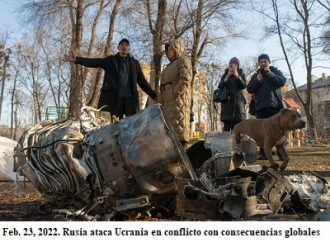

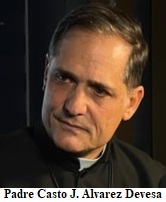
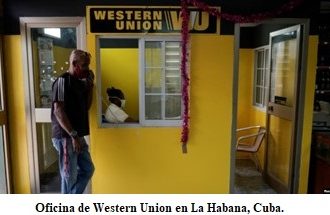
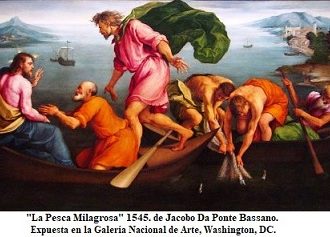








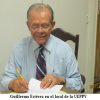

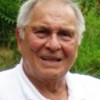

Leave a Comment
Your email address will not be published. Required fields are marked with *